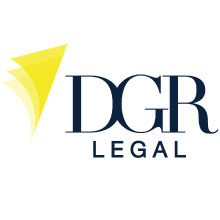How to Bank Smarter with Escrow and Trust Accounts
By Monte Ehrenkranz
As a law firm, you have a variety of options available to you for the temporary holding of funds. These options include escrow and client trust accounts. In an escrow account, funds are deposited on behalf of the client in relation to business acquisitions or real estate transactions. Then the funds are released as transactions dictate upon completion. In a client trust account, client funds are held in trust by the attorney for the benefit of the client. These types of accounts are commonly used for debt collection and to control administrative costs. Funds can also be held in connection with a settlement. It is common for a settlement check to be payable jointly to the attorney and client, covering payment to the attorney for fees and expenses, with the balance payable to the client.
Client trust accounts can also earn interest in two different ways. The interest can be earned and payable to the client, annually issuing the client a 1099 form for tax return reporting, or the attorney can earn the interest in accordance with Interest on Lawyer Trust Accounts (IOLTA) procedures, which provide protection provisions for clients.
Avoiding Mistakes with IOLTA Accounts
It is not uncommon for law firms to make mistakes with IOLTA accounts. Many legal professionals do not properly understand how trust accounts are supposed to work. First and foremost, a trust account should never be used as an operating account. These types of accounts are not rainy-day funds. You should never pay office expenses out of a trust account, even when the checks are being written out of funds that have already been earned. You must never misuse a trust account to hide assets, and you should never try to borrow funds from a trust account, as it could lead you into a situation that is very difficult to correct. Also, you should not advance funds to a client in connection with the payment for a settlement before the settlement check clears. Additionally, it is important that you keep detailed records of all transactions, as this is a requirement of state bar associations. It may seem inconvenient to do all the things required in order to manage a trust account properly, but it is far less convenient that losing your practice because of poor recordkeeping. All these mistakes are simply bad business practices that can result in detrimental circumstances for your law firm.
Choosing the Right Bank
When choosing a bank to partner with for your practice, it is important that you know what characteristics to seek out. Most banks offer the same services, but it is how they deliver them that will make all the difference in your banking experience. Superior customer service is a major factor that should distinguish the bank you choose from other banks. You do not want a bank that only offers cookie-cutter solutions, where you must adapt to their system. It should be the other way around.
You want a bank that understands your fiduciary responsibilities to your clients, but also understands the importance of maintaining a close working relationship with you. Your bank representatives should be eager to sit down with you face-to-face and listen closely to your specific needs. Look for a bank that offers flexibility and the ability to meet the unique requirements of each client that you represent. They should make it easy for you to track and manage your clients’ funds. It is also crucial that they have a solid understanding of banking in the legal environment, how to help you avoid mistakes and how their trust management solutions can best benefit you.
Regal Bank is an approved bank by the IOLTA Fund of the Bar of New Jersey, and an approved depository institution for escrow and trust accounts by the State of New Jersey Department of Banking and Insurance. Its tailored escrow services are designed to help you better manage risk associated with a wide range of business transactions. Its FDIC-insured accounts offer competitive interest and meet state requirements for receipt of interest on attorney closing accounts. For additional information, please contact Monte Ehrenkranz, Vice President/Business Development, at [email protected].





















